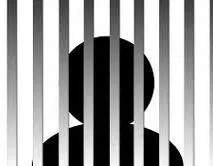 Punishment is a sanction , a penalty or a reprimand that is imposed on a person who has committed some type of offense. Punishments generally seek to function as a corrective .
Punishment is a sanction , a penalty or a reprimand that is imposed on a person who has committed some type of offense. Punishments generally seek to function as a corrective .
For example: "As punishment for skipping class, my parents will not let me go out with friends for a month," "When officials commit crimes and do not receive any punishment, the message that is transmitted to the public is very bad." , "The European Union prohibited its members from carrying out commercial exchanges with the Asian country as punishment for human rights violations committed in its territory."
There are multiple types of punishments. At the family level, punishment can be an oral scolding or a prohibition imposed by an authority figure (such as a father or mother). In the past, punishments for children used to include beatings , although physical violence is no longer supported by social consensus.
Punishment is an element of great relevance in the upbringing stage of an individual, which can bring a series of limitations or open doors, depending on the degree of severity and justice with which the reprimands are applied. As expressed in the previous paragraph, hitting is not currently accepted as a resource to teach lessons to children, although this does not prevent millions of people from continuing to use it.
When a healthy living being receives a physical attack there is no possibility of feeling anything positive; If you are in your childhood, one of the feelings that usually arise when faced with physical punishment is frustration , since you do not understand the reasons why someone who claims to love you attacks you in that way and you do not have the necessary physical strength. to defend himself.
We must not forget that this type of punishment is complemented by the prohibition of revealing oneself: the child does not have the possibility, the permission to defend himself or counterattack, but must endure the pain and humiliation of a blow from someone stronger. . As expected, if this is repeated very frequently throughout upbringing, the consequences can be very negative.
 Punishments are also applied in educational establishments and in the work context when someone fails to comply with a rule. Generally, both rules and punishments are stipulated in a regulation or code : this prevents an authority from acting arbitrarily when administering punishments.
Punishments are also applied in educational establishments and in the work context when someone fails to comply with a rule. Generally, both rules and punishments are stipulated in a regulation or code : this prevents an authority from acting arbitrarily when administering punishments.
In the educational field, punishments are varied and are applied with the intention of shaping the responsibility of students and preparing them to face adult life. Among the most common are low grades to sanction failure to complete an assignment or poor exam performance, reprimands for bad behavior , suspension from classes for a period of time, and, in the worst cases, expulsion.
Already in adulthood, punishments tend to be more relevant since there is much more at risk than passing a subject. A serious misconduct at work can lead to dismissal or a complaint that stains our reputation forever and prevents us from easily returning to the workplace; This is why the limits that the educational system imposes on its students are so important.
At the judicial level, punishments are the penalties that are applied to someone who commits a crime . Economic sanctions , deprivation of liberty (imprisonment) and even the death penalty are some of these punishments, which vary according to the penal code of each nation.
